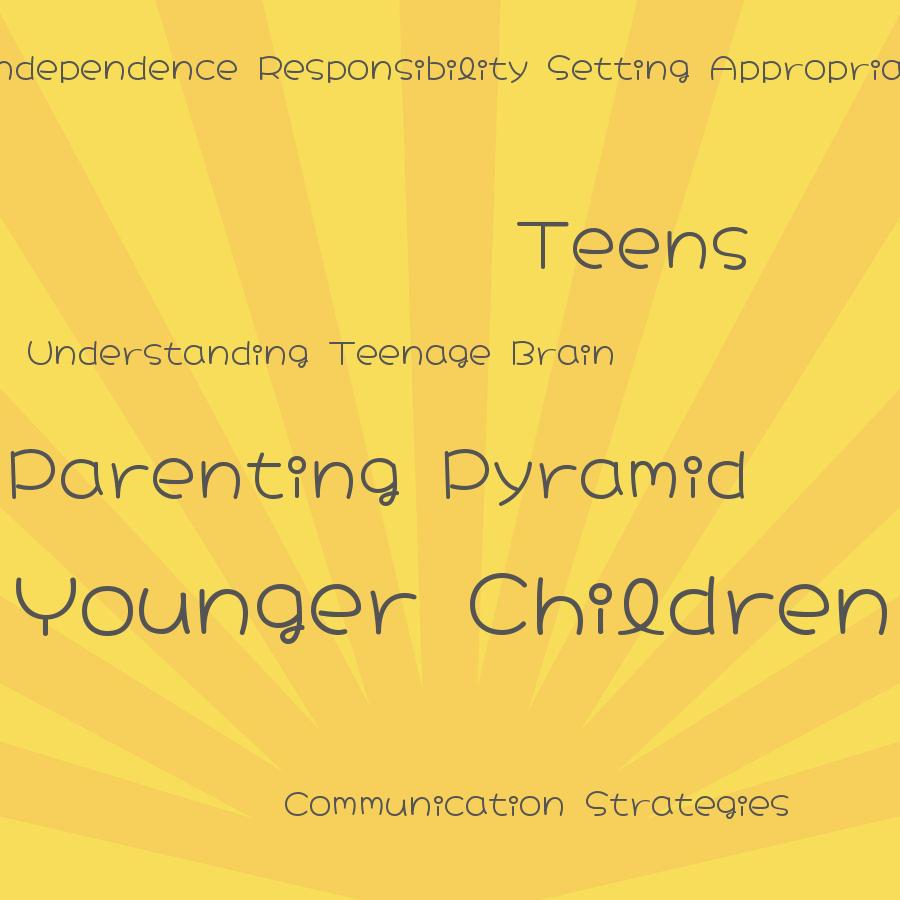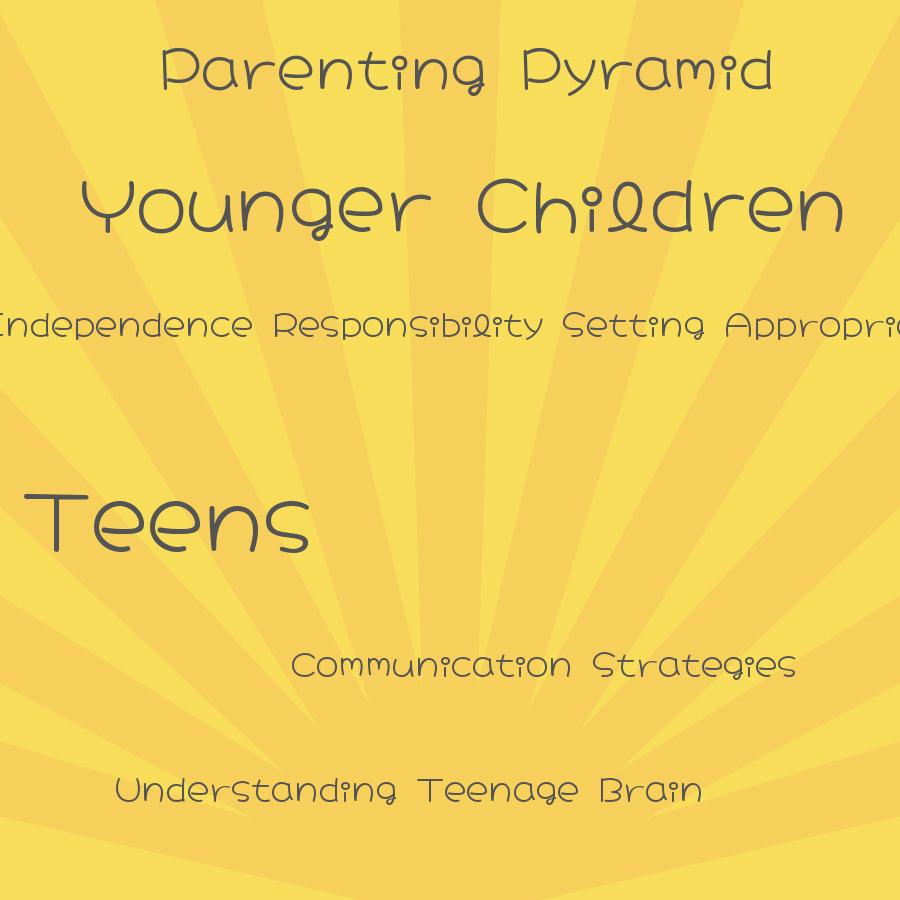The parenting pyramid for teens would involve more collaboration and autonomy, while still providing structure and support. It’s important to communicate with them openly and respectfully, allow them to make their own decisions (with guidance), and encourage their independence while also maintaining clear boundaries.
As a parent, you know that raising children is no easy feat. It’s a journey filled with ups and downs, twists and turns, and unexpected surprises.
And as your children grow older, the challenges you face change too.
When my son was younger, I used to rely on the parenting pyramid to help guide me through his development stages. The pyramid provided me with a framework for understanding his needs and how I could best support him.
But as he entered his teenage years, I realized that the parenting pyramid needed some adjustments. The strategies that worked when he was younger were no longer effective in addressing his needs now.
If you’re facing similar challenges with your teen or are preparing to enter this stage of parenting soon, then read on! In this article, we’ll explore how the parenting pyramid can be applied differently to teens than younger children. So buckle up because we’re about to embark on an exciting journey of discovery together!
Here You Will Learn:
Understanding the Teenage Brain


As parents, we all want to do our best for our children. We strive to provide them with the support and guidance they need as they navigate through life’s challenges.
And when it comes to parenting teenagers, understanding their unique needs is crucial.
One of the most significant differences between younger children and teens is their brain development. The teenage brain undergoes a lot of changes that can impact how they think, feel, and behave.
For example, during adolescence, there’s an increase in activity in the prefrontal cortex—the part of the brain responsible for decision-making and impulse control. However, this area isn’t fully developed until early adulthood.
This means that while your teen may have some level of logical reasoning skills or critical thinking abilities at this stage; they’re still prone to impulsive behavior or making poor decisions due to underdeveloped cognitive functions.
So what does this mean for applying the parenting pyramid differently? Well first off – it means recognizing that your teenager might not always make rational choices even if you’ve taught them right from wrong since childhood. In my experience as a parent myself- I found out that being patient with my son was key because he needed time before he could process information properly without feeling overwhelmed by emotions like anger or frustration which are common among teenagers going through hormonal changes.
Adjusting Communication Strategies
One of the most significant changes that parents need to make when applying the parenting pyramid to teens is adjusting their communication strategies. As children grow older, they become more independent and start developing their own opinions and ideas about the world around them.
This newfound independence can sometimes lead to conflicts between parents and teenagers.
When my son was younger, I used a lot of positive reinforcement techniques like praise, rewards, and encouragement to communicate with him effectively. But as he entered his teenage years, I realized that these strategies were no longer effective in getting through to him.
I had to adjust my communication style by being more direct with him while still maintaining an open dialogue where he felt heard. Instead of using praise or rewards for good behavior like before; we started having honest conversations about his actions’ consequences on himself or others.
It’s essential for parents not only just listen but also validate their teenager’s feelings even if they don’t agree with them fully. By doing so will help build trust between you two which is crucial during this stage in your child’s life.
Adjusting your communication strategy is one way you can apply the parenting pyramid differently when dealing with teenagers than younger children because it helps maintain an open dialogue while still being direct enough without coming off as overbearing or controlling
Encouraging Independence and Responsibility
As my son entered his teenage years, I noticed that he was becoming more independent and wanted to take charge of his life. This shift in behavior made me realize that I needed to adjust the way I approached parenting him.
One key aspect of the parenting pyramid that needed adjustment was encouraging independence and responsibility. While younger children need guidance on how to do things, teenagers want more autonomy over their lives.
To encourage independence and responsibility in teens, parents should provide them with opportunities for decision-making while still setting boundaries. For example, allowing your teen to choose their own extracurricular activities or decide what they want for dinner can help build confidence in their decision-making abilities.
It’s also important for parents not to micromanage every aspect of a teenager’s life but instead give them space to make mistakes and learn from them. By doing so, you’re helping your teen develop critical thinking skills necessary for adulthood while also building trust between you both.
As our children grow older into adolescence we must adapt our approach towards parenting by providing opportunities which allow teenagers’ growth towards self-sufficiency through encouragement rather than control – this is where the true magic happens!
Setting Appropriate Boundaries
As parents, we all want to set appropriate boundaries for our children. But when it comes to teenagers, the rules of engagement change.
What worked before may not work now. During my son’s teenage years, I realized that setting boundaries required a different approach than when he was younger.
Instead of dictating rules and expecting him to follow them blindly, I had to involve him in the process. We sat down together and discussed what was important for both of us – his need for independence and my need for safety and security as a parent.
We negotiated on curfews, screen time limits, household chores responsibilities among other things. By involving him in this process instead of imposing strict rules without explanation or discussion helped build trust between us while also ensuring that he understood why certain boundaries were necessary.
Setting appropriate boundaries is crucial during your child’s development stages but becomes more complex during their teenage years where they are seeking more independence while still needing guidance from you as their parent/guardian/caregiver. By involving them in the boundary-setting process through negotiation rather than imposition helps build trust between you two while also ensuring they understand why certain limitations are necessary at this stage in their lives
Fostering Emotional Intelligence
As my son entered his teenage years, I quickly realized that fostering emotional intelligence was a crucial aspect of parenting. Emotional intelligence is the ability to recognize and manage one’s emotions while also understanding and empathizing with others’ feelings.
During adolescence, teens experience a range of emotions as they navigate their changing bodies, social dynamics, and academic pressures. As parents, it’s essential to help our teens develop emotional regulation skills so they can handle these challenges effectively.
To foster emotional intelligence in your teen using the parenting pyramid framework:
- Start by modeling healthy emotional expression yourself.
- Encourage open communication with your teen about their feelings.
- Help them identify different emotions accurately.
- Teach them coping mechanisms for managing difficult emotions such as deep breathing or journaling.
By prioritizing this aspect of the parenting pyramid when raising teenagers, you’ll be equipping them with valuable life skills that will serve them well into adulthood!